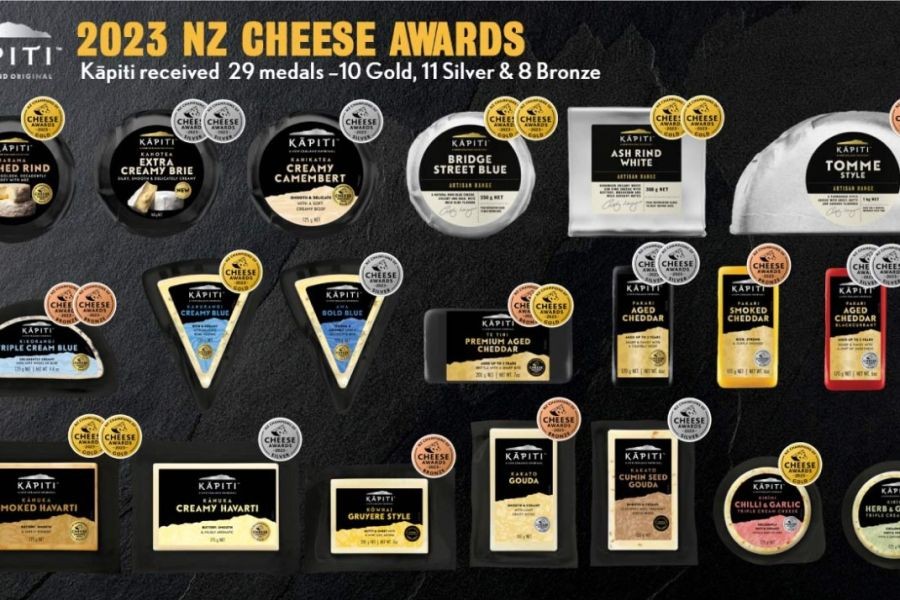In the digital age, social media platforms have become crucial marketing tools for businesses worldwide. However, not all platforms are created equal, and what works in one region might not be effective in another. For New Zealand brands, particularly in the commercial real estate sector, TikTok might not be the ideal platform for marketing efforts. While TikTok boasts over a billion users globally, its relevance and impact on New Zealand's real estate market remain debatable.
Understanding the New Zealand Market Landscape
New Zealand's economy is unique, characterized by a relatively small population, a strong emphasis on agriculture, and a growing focus on technology and sustainability. According to the Ministry of Business, Innovation, and Employment (MBIE), the commercial real estate market in New Zealand is experiencing steady growth, driven by urbanization and a burgeoning tech industry. However, this growth is coupled with challenges such as regulatory constraints and the need for sustainable development.
Given this context, New Zealand's commercial real estate sector requires a tailored marketing approach that resonates with local values and business practices. TikTok, while popular globally, may not align with these needs due to its demographic skew and content style.
Case Study: TikTok's Global Success vs. Local Relevance
Globally, TikTok has been a game-changer, particularly in consumer goods and fashion industries. For instance, brands like Gymshark have leveraged TikTok to engage younger audiences, leading to a 30% increase in sales within a year. However, when we look at the New Zealand commercial real estate sector, the dynamics differ significantly.
A Stats NZ report indicates that the median age of New Zealand's population is 37.4 years, with a significant portion of the real estate decision-makers being in their 40s and 50s. This demographic is less active on TikTok, which primarily attracts users aged 16-24. Therefore, the platform's reach and influence in this sector are limited.
The Misalignment of TikTok with New Zealand's Business Culture
New Zealand businesses, especially in commercial real estate, value professional relationships and trust. Platforms like LinkedIn and traditional networking events are more aligned with these values. TikTok's content style, often characterized by short, entertaining videos, may not convey the professionalism required in real estate transactions.
Moreover, New Zealand's emphasis on sustainability and community-focused initiatives is often better communicated through platforms that support detailed storytelling and engagement, such as Instagram or Facebook. These platforms allow brands to showcase their commitment to environmental and social governance (ESG) standards, which are increasingly important to New Zealand consumers and investors.
Data-Driven Insights from New Zealand's Digital Landscape
According to Digital 2023 New Zealand, only 25% of New Zealanders aged 35 and above use TikTok, compared to over 60% using Facebook and Instagram. This statistic underscores the misalignment between TikTok's user base and the target demographic for commercial real estate in New Zealand.
Furthermore, the Reserve Bank of New Zealand highlights that the country's economic stability and growth are reliant on sectors like real estate, which require thoughtful and strategic marketing to attract international investors. TikTok's format may not provide the depth needed to communicate complex investment opportunities and market analyses.
Pros and Cons of Using TikTok for New Zealand Brands
✅ Pros:
- Viral Potential: TikTok's algorithm can rapidly increase brand visibility through viral content.
- Creative Engagement: The platform encourages innovative content creation that can enhance brand personality.
- Younger Audience: Effective for targeting younger demographics who may influence family real estate decisions.
❌ Cons:
- Demographic Mismatch: The primary users of TikTok are younger than the typical real estate decision-makers in New Zealand.
- Content Style Misfit: Short, entertaining videos may not suit the professional tone required in commercial real estate.
- Limited Reach: Compared to other platforms, TikTok's reach in New Zealand is relatively smaller among target demographics.
Common Myths About TikTok in the NZ Real Estate Market
- Myth: "TikTok is for all businesses." Reality: TikTok's user base and content style do not align with the needs of professional sectors like real estate.
- Myth: "More views equal more sales." Reality: Engagement metrics do not necessarily translate to sales, especially in high-stakes industries like real estate.
- Myth: "TikTok is the future of marketing." Reality: While it is a powerful tool for certain industries, its impact on specialized sectors like commercial real estate is limited.
Future Trends: The Evolution of Social Media Marketing in New Zealand
As New Zealand's digital landscape evolves, businesses must adapt to changing consumer behaviors and technological advancements. By 2026, it is predicted that platforms like LinkedIn and Instagram will see increased usage among professionals, driven by their ability to support detailed content and professional networking. Additionally, the integration of AI and virtual reality in real estate marketing is expected to revolutionize how properties are showcased to potential buyers.
Final Takeaways: What New Zealand Brands Should Consider
- Understand Your Audience: Focus on platforms that align with your target demographic and industry needs.
- Leverage Local Insights: Use data from New Zealand-specific sources to tailor your marketing strategies.
- Embrace Sustainability: Highlight your commitment to ESG standards through platforms that support detailed storytelling.
- Stay Updated: Keep track of emerging digital trends to remain competitive in the evolving market landscape.
Ultimately, while TikTok offers unique advantages for certain brands, New Zealand's commercial real estate sector may benefit more from platforms that align with its professional and demographic requirements. As the digital marketing landscape continues to evolve, staying informed and adaptable will be key to success.
People Also Ask
- How does TikTok impact businesses in New Zealand? While TikTok can boost brand visibility, its impact is limited in professional sectors like real estate due to demographic mismatches.
- What are the biggest misconceptions about TikTok for NZ brands? One common myth is that TikTok suits all businesses. However, its user base doesn't align with all industries, especially professional ones like real estate.
- What are the best strategies for implementing TikTok marketing? Focus on creative, engaging content that resonates with younger audiences. However, ensure it aligns with your brand's goals and audience.
- What upcoming changes in New Zealand could affect social media marketing? By 2026, increased use of LinkedIn and Instagram among professionals could shift marketing strategies in sectors like real estate.
- Who benefits the most from TikTok marketing? Brands targeting younger demographics, such as fashion and lifestyle, benefit most from TikTok's viral potential.
Related Search Queries
- TikTok marketing for real estate
- Social media trends in New Zealand
- Best platforms for NZ businesses
- Impact of TikTok on professional sectors
- Future of digital marketing in New Zealand
In conclusion, while TikTok is a powerful tool for some industries, New Zealand brands, particularly in the commercial real estate sector, may find more success with platforms that better align with their target audience and market needs. Adapting to local contexts and staying informed about digital trends will be crucial for effective marketing strategies.
































Isabel Miner
9 months ago